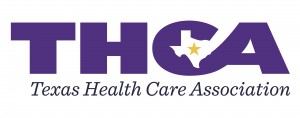Sine Die Leaves Unmet Need for Eldercare
For Immediate Release
June 4, 2015
Contact: Rebecca Reid
410-212-3843
Sine Die Leaves Unmet Need for Eldercare
Texas Nursing Home Providers Request to Lawmakers to Close the Medicaid Shortfall Gap Goes Unheeded
(Austin, TX) – After a rigorous effort to educate lawmakers this legislative session on the challenges Texas nursing home providers face in hiring staff and improving quality measures when the state’s Medicaid rate hovers near the bottom nationally, those in charge of caring for the elderly watched adequate funding for low-income seniors never make it to first base in budget talks. The state announced a $343 million Medicaid shortfall for nursing home care in Texas at the outset of the session, yet closing the gap in funding for eldercare never became a priority, leaving nursing home providers without the necessary relief to address the significant recruitment and retention challenges facing the industry.
“The nurses, facility administrators and nurse aides that visited Austin during the legislative session to encourage lawmakers to raise the Medicaid rate so it actually covers the cost of care, were advocating for their elderly patients,” said Kevin Warren, President and CEO of the Texas Health Care Association. “The individuals who care for our aging Texans serve as the voice of the frail elderly who have diminished financial resources and increasingly complex health conditions. The ability to recruit and retain hardworking, dedicated staff for a consistent, stable workforce is contingent upon adequate Medicaid funding. This is a hard reality to take back to nursing home staff working 24/7 and to their patients who need them.”
Texas nursing home providers have long maintained a direct correlation between adequate staffing and the enhancement of care quality for nursing home residents. In a first quarter 2015 survey of Texas nursing home providers, 74% cited frontline staff turnover as significantly impacting their ability to achieve facility improvement goals. The current state Medicaid rate pays nearly six dollars an hour to care for patients who suffer from dementia, chronic conditions and challenges in meeting the activities of daily living.
“An overwhelming majority of Texas voters polled this year – eighty percent – favored increasing Medicaid funding for nursing home care, yet that too was not enough to trigger budgetary support for the more than 57,000 nursing home residents who depend on that program,” said Warren.
State statistics show that 3.2 million Texans are currently over the age of 65 and that number is expected to grow to 7.5 million by 2040. Similarly, the percentage of people ages 85 and older is expected to double over the same span.
“Moving Texas to the top in the nation for nursing home care will be that much more difficult if providers do not have the resources to invest in the day-to-day care for the frail elderly,” cautioned Warren. “The commitment by providers and the investment by the state legislature will elevate the level of care for Texas elderly. That must be a shared goal.”
# # #
About THCA
Founded in 1950, the Texas Health Care Association (THCA) is the largest long-term care association in Texas. THCA’s membership is comprised of several hundred licensed non-profit and for-profit skilled nursing facilities (SNFs), specialized rehabilitation facilities and assisted living facilities in Texas. These facilities provide comprehensive, around-the-clock nursing care for chronically ill or short-term residents of all ages, along with rehabilitative and specialized medical programs. THCA also represents more than 190 long-term care businesses that provide products and services to the state’s approximately 2,850 nursing homes and assisted living facilities. To learn more, visit https://txhca.org/ or connect


